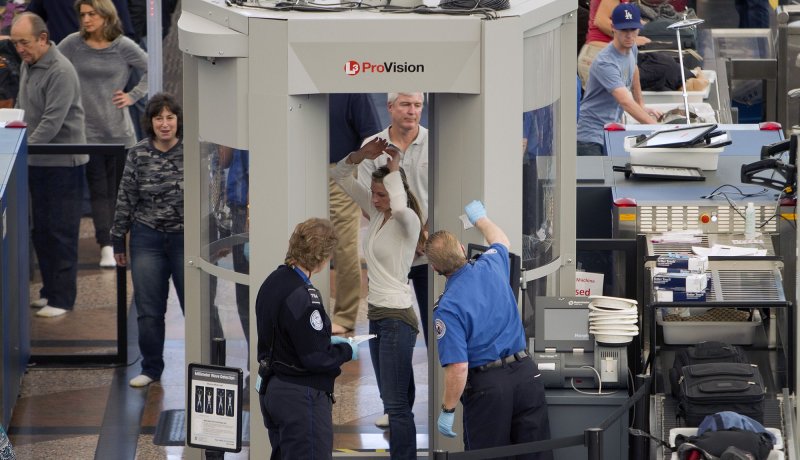Transportation Security Administration (TSA) agents conduct full-body scans at Denver International Airport (DIA) the day before the Thanksgiving holiday on November 24, 2010 in Denver. DIA officials expect a record number of passengers to pass through the airport. A passenger boycott of the full body scanners did not appear to materialize at DIA. UPI/Gary C. Caskey |
License Photo
WASHINGTON, Oct. 19 (UPI) -- The Transportation Security Administration is replacing X-ray body scanners at some U.S. airports with equipment that experts say is safer, ProPublica reported.
The TSA says the decision to replace the X-ray scanners -- known as backscatters -- to smaller airports was motivated by a desire to speed up action at busy airport checkpoints, the news organization reported Friday.
At the same time, it will result in fewer travelers being exposed to radiation, the report said.
The TSA confirmed it has removed backscatters from Boston Logan International Airport, Los Angeles International Airport, Chicago O'Hare, Orlando and John F. Kennedy in New York.
TSA spokesman David Castelveter said the switch was not done out of concern for radiation risk and privacy issues and not all backscatters are being swapped out.
"It's being done strategically," he said. "We are replacing some of the older equipment and taking them to smaller airports. That will be done over a period of time."
He said the TSA decided to move the X-ray machines to less-busy airports after conducting an analysis of processing time and staffing requirements at the airports where the scanners are installed.
The replacement equipment, millimeter-wave scanners, use low-energy radio waves like those used in cellphone technology, ProPublica reported.















